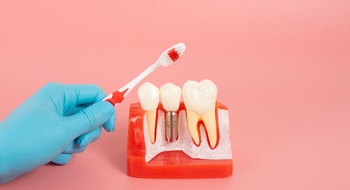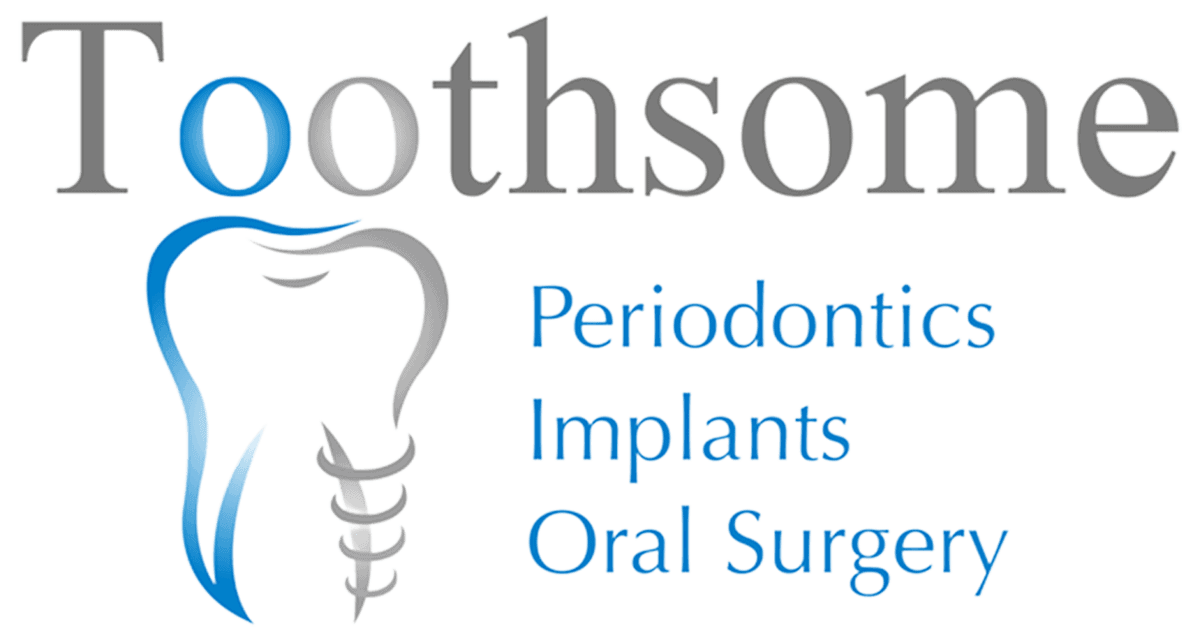In a society where a brilliant smile is valued, dental implants have risen as the premier solution for missing teeth, providing a long-lasting remedy for those who seek to restore their oral aesthetics and functionality. This article delves deeply into the intricate landscape of dental implant costs in Australia, providing a detailed account to help individuals make informed decisions regarding their dental treatment options.
What Are Dental Implants?
Dental implants have become the high standard for tooth replacement, heralding a revolutionary change in dental treatment. Dental implants offer a robust and enduring solution for those grappling with the loss of natural teeth. Below is an in-depth exploration of dental implants, delineated through various subheadings to offer a comprehensive understanding.
Definition and Basic Overview
Dental implants are surgical components interfacing with the bone of the jaw or skull to support dental prosthetics such as crowns, dental bridges, or dentures. At their essence, they act as artificial roots, providing a stable foundation upon which the visible part of the synthetic tooth is affixed.
Components of a Dental Implant
 A dental implant is usually composed of three main elements:
A dental implant is usually composed of three main elements:
Implant: A screw that acts as a root for your new teeth. This part is permanently attached to the jaw bone.
Abutment: A permanent connector that anchors and holds a tooth or set of teeth and can only be removed by a dental professional.
Crown (or Prosthesis): The top part of the tooth that is visible, created to look like a natural tooth.
The Importance of Dental Implants
Dental implants have paramount importance in restorative dentistry. They not only reinstate the aesthetic appeal lost due to a missing tooth but also restore the function of natural teeth, allowing for normal eating, speaking, and smiling. More than mere aesthetic fixtures, dental implants prevent bone loss, maintain face structure, and avoid the shifting of surrounding teeth, thereby ensuring oral health integrity.
The Procedure of Dental Implant Surgery
Dental implant surgery is a multiple-step process that entails the placement of the implant into the jawbone, a procedure termed osseointegration. After successfully integrating the implant with the bone, the abutment is placed, followed by the attachment of the crown.
Consultation and Planning: Involves thorough examination and assessment to devise a tailored treatment plan.
Insertion of the Implant: The implant is surgically inserted into the jaw bone, replacing the missing tooth’s root.
Healing and Integration: A healing period allows the implant to integrate securely with the bone.
Placement of the Abutment and Crown: Once healed, the abutment and the artificial tooth (crown) are attached to the implant.
Varieties of Dental Implants
Dental implants come in various types to cater to individual needs:
Endosteal Implants: These are the most common type of implants, placed directly into the jawbone, resembling small screws.
Subperiosteal Implants: Positioned under the gum but above the jawbone, these are ideal for patients with a shallow jawbone.
Zygomatic Implants: These are the least common and are placed in the cheekbone instead of the jawbone.
Candidates for Dental Implants
Only some people are suitable patients for dental implant treatment. Ideal candidates should have good overall health, adequate bone density in the jaw, and healthy gums. Those with compromised immune systems, smokers, or those suffering from chronic conditions like diabetes may face complications and must explore other dental treatment options.
Aftercare and Longevity
Proper aftercare is essential for the durability of dental implants. Regular cleaning, dental check-ups, and avoiding damaging habits like chewing hard items and smoking can ensure the implants last a lifetime. With meticulous care, dental implants can offer a durable and reliable solution for missing teeth.
Factors Influencing the Cost
Deciphering the cost of dental implants in Australia can be similar to navigating a labyrinth, with many elements impacting the final price tag. It’s crucial to approach this intricate subject meticulously, considering each variable contributing to the overall cost. Below is a comprehensive exploration of these influencing factors, painting a nuanced picture for those considering dental implant treatment.
Type of Dental Implant
The kind of dental implant chosen is one of the chief determinants of cost. Several varieties exist, including endosteal, subperiosteal, and zygomatic implants. Endosteal implants, inserted directly into the jawbone, are the most conventional and widely used, often boasting a higher success rate. Subperiosteal implants are used when the jawbone is insufficient, and zygomatic implants are rare, used when even the jawbone isn’t ideal and placed in the cheekbone. Each type has unique procedural requirements and cost structures, impacting the overall expense.
Material of the Implant
The choice of material is another pivotal factor influencing cost. The prevalent materials used are titanium and zirconia. Titanium, being highly durable and less expensive, is the more common choice. Zirconia, however, is gaining traction for its metal-free composition and aesthetic superiority but tends to be more costly.
Geographic Location
The geographic locale of the dental clinic plays a major role in determining the cost of dental implants. With their elevated living and operational costs, metropolitan areas usually have higher prices than regional or rural areas. However, one must weigh the benefits of accessibility and the availability of experienced dental professionals in metropolitan regions against the potential cost savings in less urbanised areas.
Number of Implants Needed

The quantity of implants required is directly proportional to the cost; single dental implant costs differ significantly from full mouth dental implant costs. Those requiring multiple implants or having multiple missing teeth will inevitably face a steeper total expense, demanding careful financial planning and consideration.
Dentist’s Expertise and Experience
The dentist’s level of expertise and experience is a vital consideration. Renowned and highly qualified dentists may charge a premium for their services, reflecting their knowledge, skills, and the assurance of high-quality care. Choosing a proficient dental professional is critical, as it can mitigate the risk of complications and ensure the longevity of the implant.
Additional Procedures
For some individuals, supplementary procedures such as bone grafts or sinus lifts may be necessary to create a conducive environment for the implant. These additional procedures augment the overall cost of dental implant surgery. A bone graft is needed when the jawbone is not thick enough to support the implant, and its cost is influenced by the type and amount of bone graft material used.
Laboratory and Prosthetic Costs
The costs related to the dental laboratory and the fabrication of dental prosthetics also play a crucial role in the overall expense. The quality and type of prosthetic, whether a crown, bridge, or denture, influence the price, with higher quality materials and craftsmanship demanding a higher premium.
General Cost Breakdown
When delving into dental implants and their associated costs in Australia, dissecting the various financial components involved is crucial. From initial consultations to post-operative care, each phase has its attached pricing, necessitating a detailed understanding for those considering this dental treatment.
Initial Consultation
Before embarking on the journey of acquiring dental implants, a comprehensive consultation is paramount. This initial meeting with a dental professional typically involves an examination of oral health, a discussing of medical history, and possibly X-rays or 3D images. The starting price for such consultations can range from $150 to $350, varying based on the clinic and the extent of the examination.
Diagnostic Procedures
Following the consultation, diagnostic procedures like X-rays or CT scans are often imperative to assess the bone structure and determine the feasibility of the implant procedure. These diagnostic tools provide intricate details about the jaw bone, which is crucial for precise implant placement. The starting cost for these procedures can be around $100 to $200 per scan, depending on the required type and number of scans.
Implant Surgery
The cornerstone of the entire process is the dental implant surgery, where the implant is surgically placed into the jawbone. This procedure’s starting costs can be substantial, with prices around $2000 per implant. The complexity of the surgery, the type of implant used, and the surgeon’s expertise significantly influence the final cost.
Additional Procedures
In cases where the jaw bone is inadequate to support the dental implant placement, additional treatments like bone grafts or sinus lifts may be necessary. These supplementary interventions can have starting costs ranging from $500, depending on the complexity and the materials used for dental implants. Painful surgical procedures like this may also require anaesthesia.
Abutment and Crown Placement
Post successful implant surgery and healing, the abutment and the crown are placed. The starting cost for the abutment can be around $500, and the crown can start from $1000—the material of the crown and the laboratory charges for fabricating the prosthetic influence these costs.
Post-Operative Care
Post-operative care is crucial for the success and longevity of full mouth dental implants. Follow-up visits, medication, and routine maintenance can have varying costs, from $100, based on individual needs and the dental professional’s fees.
Understanding the general breakdown of dental implant cost in Australia is pivotal for anyone contemplating this dental procedure. It provides a foundational insight into the multifaceted financial aspects involved, allowing prospective patients to plan accordingly.
Comparative Analysis: Australia vs Other Countries
A comparative analysis between Australia and other countries unveils noteworthy insights when traversing the varied terrains of dental implant costs globally. Though many might perceive that the cost of dental implants in Australia is substantially higher, it’s essential to consider the encompassing factors such as quality, standards of care, and long-term success rates, making Australia a distinguished choice for dental implant procedures.
Quality of Dental Care
Australia stands out prominently when it comes to the quality of dental care. The country adheres to meticulous standards and stringent regulations, ensuring that every dental procedure, including dental implants, is conducted with utmost precision and care. Many overseas destinations might offer lower prices, but the compromise on quality and safety standards can be substantial.
Highly Qualified Dental Professionals
The proficiency and expertise of Australian dental professionals are unparalleled, contributing to the nation’s elevated standing in dental care. Dentists in Australia undergo rigorous education and extensive training, ensuring a profound understanding of intricate dental procedures. This contrasts sharply with the varied levels of qualification and expertise found in other countries, where often, lower costs correlate with less experienced professionals.
Advanced Technology and Materials
Australia’s investment in cutting-edge dental technology and high-grade materials is noteworthy. Integrating advanced diagnostic tools, surgical equipment, and superior implant materials ensures optimal outcomes and longevity of dental implants. In contrast, the usage of outdated technology and inferior materials in some countries can lead to compromised results and frequent complications.
Regulatory Standards and Ethical Practices
Australia’s adherence to stringent regulatory standards and ethical practices instils confidence in patients opting for dental implants. The transparency, accountability, and patient-centric approach Australian dental clinics adopt is often unparalleled, assuring reliability and trustworthiness. In some other countries, lax regulations and questionable practices can result in unforeseen complications and dissatisfaction.
Long-Term Success and Post-Operative Support
The emphasis on long-term success and comprehensive post-operative support distinguishes Australia in the domain of dental implants. Australian dental clinics often provide exhaustive follow-up care and support to monitor the implant’s success and promptly address any concerns. This sustained commitment to patient well-being is often lacking in countries offering cheaper alternatives, where post-operative care can be minimal or non-existent.
Holistic Health and Aesthetics Focus

Australia’s approach to dental implants is holistic, considering functional restoration and aesthetic enhancement. The meticulous attention to detail and the commitment to achieving natural-looking results underscore the superiority of Australian dental care. In many countries, the focus might be predominantly on functionality, with aesthetics receiving lesser attention, impacting the overall satisfaction and well-being of the patients.
Insurance and Financing
Embarking on the journey of acquiring dental implants comes intertwined with financial considerations, where understanding the nuances of insurance and financing options becomes crucial. In Australia, navigating through these financial avenues requires meticulous attention to detail and an insightful approach to make the dental implant procedure more accessible and manageable.
Understanding Dental Insurance Coverage
In Australia, the landscape of dental insurance can be intricate, with coverage varying extensively among different providers. Typically, dental insurance policies categorise dental implant procedures under major dental services, and the extent of coverage depends on the chosen policy and the level of extras covered. It’s crucial for individuals considering dental implants to meticulously review their insurance policy, discerning the level of coverage, any waiting periods, limitations, and exclusions to prevent unforeseen out-of-pocket expenses.
Some policies may cover portions of the dental implant procedure, such as the crown or initial consultation, but may only cover part of the treatment. Thus, thoroughly understanding the insurance policy and discussing the coverage with the insurance provider are essential steps in accurately estimating the financial responsibility involved.
Exploring Financing Options
Beyond insurance, several dental clinics offer financing options to alleviate the immediate financial burden of dental implant procedures. These financing plans can be invaluable, allowing patients to spread the dental implants cost over time, making the treatment more affordable. However, it’s imperative to approach these options with caution, understanding the terms, interest rates, and any additional fees involved.
Some clinics offer interest-free financing options, where the cost can be divided into manageable monthly payments without additional interest. However, understanding the duration of the interest-free period and ensuring timely payments is crucial to avoid any subsequent interest accumulation. Other clinics may collaborate with external financing companies, offering loan options with varied interest rates and payment plans, necessitating a careful review of the agreement to determine its suitability.
Government Subsidies and Support
In some instances, government subsidies or support may be available, particularly for individuals with specific health conditions or those experiencing financial hardships. Exploring available government assistance programs and understanding the eligibility criteria can provide additional support in managing dental implant treatment costs. However, such assistance is usually limited, and not everyone may qualify, making it essential to explore this avenue alongside other financial options.
Personal Savings and Health Savings Accounts
Utilising personal or health savings accounts is another viable option for managing dental implant costs. Planning and allocating funds for the procedure can help manage the expenses without relying on external financial aid. A health savings account, where funds are reserved specifically for medical expenses, can also be prudent, providing tax benefits and financial flexibility.
Conclusion
Every prospective dental implant patient needs to consider the multifaceted aspects, from the quality of care to the financial obligations involved, to make balanced and well-informed decisions. Australia’s commitment to quality, patient well-being, and holistic dental solutions assures excellence and long-term satisfaction.
Should you contemplate pursuing dental implants and desire a detailed, personalised insight into the procedure, financial options, and any other concerns, do not hesitate to contact Toothsome Implant Chatswood at (02) 9159 3728. Our team of dedicated and highly skilled professionals is here to guide you through every step, ensuring a seamless, transparent, and enriching experience tailored to your unique needs and aspirations.
Remember, your journey to a rejuvenated, confident smile imbued with quality and reliability is just a call away! So, leap today and embrace the transformative journey with Toothsome, your companion in superior dental care!



